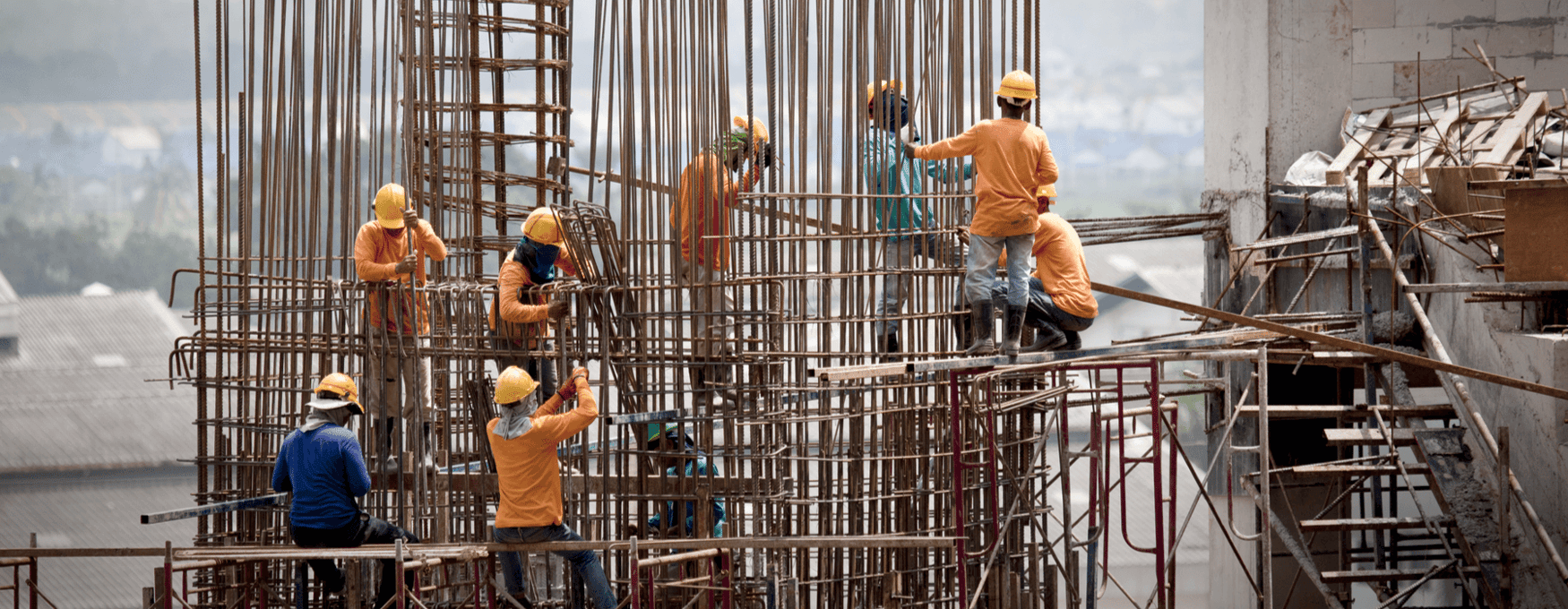Engineering Products for the Commercial Construction Industry

We have come a long way as a species from the construction of the Stone Age. Gone were the days where people had to use less durable materials and spend lengthy days- even months, to complete a single infrastructure. Now, if you are looking for engineering products for the commercial construction industry, look no further because we have the list of things you need below.
Robotic Welding
Robotic welding was developed in 1962 and began to gain popularity in the 1980s. The benefits became widely recognized and they began to make their way in other industries. Recent technological advancements such as 3D laser vision have made this technology even more efficient.
Robots can make precise, quality welds. These can be done repeatedly, with each weld having the same quality. This leads to stable, and consistent welding.
They also improve productivity as they can carry out complex welds simultaneously. They have the ability to work quickly and tirelessly without compromising quality.
In addition, they also keep humans safe. Prior to its invention, humans would carry out every welding process. This meant they were exposed to hazardous and toxic environments and fumes. The use of robotic welding gets rid of any potential health and safety concerns.
Beams
For commercial construction, it is important to opt for the materials and products that will guarantee structural stability and longevity.
Spreader beams and lifting beams are two different types of below-the-hook lifting devices. Both beams keep the lifting slings at a particular angle in order to avoid damaging the load, the rigging hardware, and to prevent the slings from sliding off during the lift.
Spreader beams are beams where the load that is lifted is putting compressive stress in the beam. For this reason, the engineering experts at RUD recommend spreader beams due to how lightweight they are. This makes it easy to handle and transport them.
A lifting beam is a beam where the load lifted puts bending stress on the beam. These types of beams are heavier although they are good for situations where an overheard room is an issue.
These are the two main types of beams, but there is some confusion around the exact difference. The above information mainly highlights their difference which is the type of force that is applied to the beam.
Fabrication
Fabrication is the process of manufacturing steelwork components that form a full-frame when put together. This process creates an end result from raw or semi-finished materials instead of creating an end result that has been made from ready-made materials.
There are several different manufacturing methods, the method used depends on the initial metal and the desired end item.
There are several technical aspects to think about when it comes to the design of economic fabrication. This could be related to the complications of a project or the project type.
Accurate information is vital in order for the work to be assessed correctly. If the steelwork is pre-designed, all member sizes must be shown and the connection forms should be shown or available.
Most custom fabricated items are made from common metals and their alloys. The most popular types used are brass, copper, aluminum, gold, nickel, iron, tin, magnesium, titanium, and varying steel grades.
One form of fabrication is casting. This is when molten metal is poured into a mold, and cooled until it has hardened into the desired shape. This method is great for mass-producing parts, as the mold can be reused in order to create identical items. There are different types of casting, die-casting is where the liquid metal is forced into a mold cavity, pressure is then applied that keeps it in place until it has hardened.
Transport Frames and Lifting Platforms
Handling material effectively is important in order to prevent damage and make it easier to move around. Using lifting platforms or transport frames, your staff can handle cargo, increase productivity, and establish a safe working environment.
These are some of the engineering products commonly used in the commercial construction industry. Although most of these are common, many are highly specialized and customized in order to fit the job they are required for.
Product Reviews:
- Energy Monitoring Systems for your multi-unit building
- The complete guide to Ductless Air Conditioners
- The Complete Guide to Locksets for Apartments

Ravindra Ambegaonkar
Ravindra, the Marketing Manager at NY Engineers, holds an MBA from Staffordshire University and has helped us grow as a leading MEP engineering firm in the USA
Join 15,000+ Fellow Architects and Contractors
Get expert engineering tips straight to your inbox. Subscribe to the NY Engineers Blog below.


